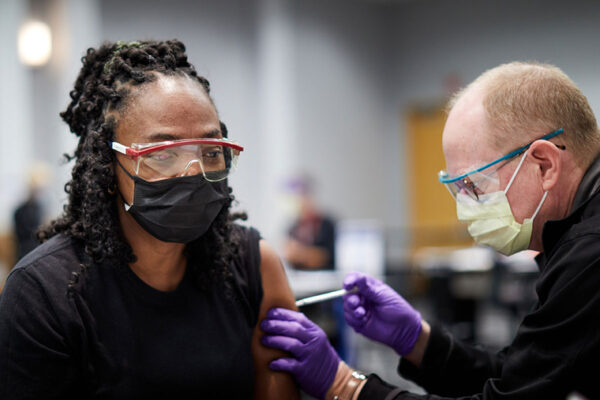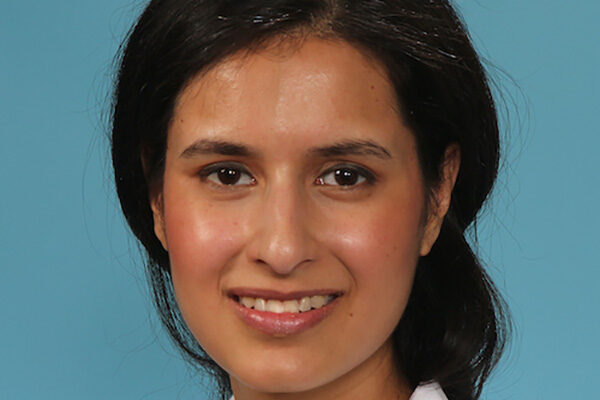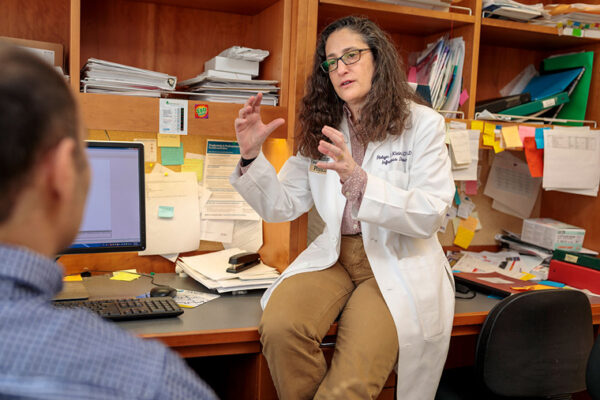Antibodies elicited by COVID-19 vaccination effective against delta variant
School of Medicine researchers have found that the delta variant of the virus that causes COVID-19 is largely unable to evade antibodies elicited by vaccination. The findings help explain why vaccinated people have been at low risk of getting seriously ill with COVID-19.
Loeb Teaching Fellow announced
Noor Riaz, MD, a pediatric hospitalist, has been named the 2021-23 Carol B. and Jerome T. Loeb Teaching Fellow at the School of Medicine.
Cannabis use disorder: another COVID risk factor
Findings from the Department of Psychological & Brain Sciences in Arts & Sciences and the School of Medicine suggest cannabis use disorder should be added to the list of COVID-19 risk factors.
Memory disorders after viral infections focus of $8.7 million grant
The School of Medicine’s Robyn Klein, MD, PhD, has received an $8.7 million grant from the National Institutes of Health (NIH) to investigate how viruses may cause diseases of “pathological forgetting.”
Variations in sodium channel molecular composition may drive drug efficacy
Washington University’s Jonathan Silva and Jeanne Nerbonne led a team that found that two drugs sometimes prescribed to treat arrhythmias affect heart atria and ventricles differently depending on the molecular composition of the sodium channels expressed.
Prabhu named cardiovascular division director
Sumanth D. Prabhu, MD, an internationally recognized expert in how immunity and inflammation contribute to heart failure, has been named director of the Cardiovascular Division in the Department of Medicine at Washington University School of Medicine.
Research to explore how genes, other factors affect cardiometabolic disease risk
With an $8.8 million grant from the National Institutes of Health (NIH), researchers at Washington University School of Medicine will study how an individual’s risks of cardiometabolic diseases are influenced by the interaction of specific genes with demographic and lifestyle factors.
Postdoctoral researchers receive Keck fellowships
This year’s W.M. Keck Fellowships in Molecular Medicine have been awarded to three postdoctoral researchers at Washington University. The fellowships are funded with a gift from the W.M. Keck Foundation.
$33 million to support study comparing anesthetic medications
Funded by a $33 million grant, a new study led by School of Medicine and University of Michigan researchers will compare intravenous propofol to inhaled anesthetic drugs to determine which of the common anesthetic drugs offers better patient recovery experiences and improved clinical outcomes.
17-year study of children associates poverty with smaller, slower-growing subcortical regions
Research from the lab of Deanna Barch shows a lasting relationship between childhood poverty, brain development.
View More Stories









